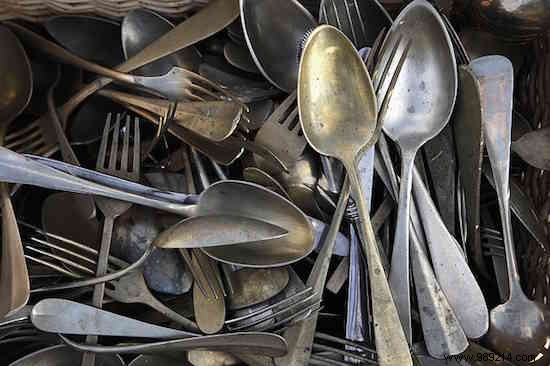
Christmas, New Years, Halloween and Valentine's Day are events which we celebrate throughout the year.
But we sometimes forget that these cultural assets were created from scratch and gradually integrated into our culture.
These traditions that we celebrate are a choice even if sometimes we no longer feel like we have to celebrate them when we don't necessarily want to...
These traditions are of course ours, but that does not mean that we cannot add others, remove some or modify them as we see fit.
If you want to develop a new perspective in your life, there are plenty of other ways to appreciate the joy and happiness of living, apart from the cultural traditions that we know in France.

From Scandinavia to Japan, via India and Germany, the traditions below will perhaps inspire you and make you want to integrate them into your life, as is the case for me with some of the between them.
And by discovering these cultural concepts different from ours, perhaps you will recognize ideas that you had thought of, but on which you could not put words to them.
Here are 7 traditions that don't exist in France, but that you should adopt:

Friluftsliv comes from Norwegian. This tradition literally translates to “outdoor living” — but this translation doesn’t quite do it justice.
Introduced fairly recently into the Norwegian language, in 1859, this word is supposed to describe the notion of the benefits of the outdoors on our soul and spirit.
In Norway, it is used to describe the way of life of people who appreciate nature and like to explore it.
However, the definition of Friluftsliv is far from being limited to that.
Friluftsliv , it can be many things at the same time:sleeping outdoors, hiking, taking photos of nature or dancing barefoot in the grass.
Friluftsliv concerns both adults and children and does not require any special equipment. You can practice Friluftsliv every season of the year — and without necessarily spending money.
Practice friluftsliv , it can be as simple as venturing out for walks, every day of the week.
Or it could also be the decision to go hiking for a whole day, every month of the year.

Contrary to the translation of Friluftsliv , the expression in French does justice to the word. And yet both describe a similar notion.
Shinrin-yoku comes to us from Japanese and means "forest bathing".
Shinrin-yoku represents the benefit of spending time in the forest (and in general, in the middle of nature).
For the Japanese, shinrin-yoku is a form of preventive medicine which reduces stress.
Everyone knows that stress can cause or exacerbate many illnesses considered incurable.
Actually, shinrin-yoku is not just a cultural tradition.
According to researchers, the "magic" of shinrin-yoku would come from phytocides , molecules excreted into the air by trees and forests.
On plants, herbicides act a bit like pheromones. They repel insects and slow the spread of fungi and bacteria.
But it is scientifically proven that herbicides also work on humans.
Phytocides lower blood pressure and reduce stress, researchers say. They also increase the production of white blood cells (which have anticarcinogenic properties).
Here are some examples of plants that secrete phytocides:garlic, onion, pine, tea tree and oak.
This makes sense, since most of these plants are also known for their powerful fragrances and their uses as essential oils.

H ygge is probably why the Danes are considered one of the happiest people in the world.
For more than 40 years, most polls have shown Denmark to be one of the happiest countries in the world — despite long, sparse and harsh winters.
The approximate translation of Hygge would be "being together" or "cozy atmosphere". This is not a description of a physical state, but rather a description of a mental state.
According to Denmark's official tourism website, "Warm candlelight is Hygge . Friends and family are also Hygge . »
"And let's not forget the pleasure of drinking and eating something in good company, chatting for hours about the big and small things in life. »
Peak season for Hygge, it's winter. Manifestations of Hygge are garlands, candles galore and all manifestations of heat and light (including mulled wine!).
You still don't see how you could integrate Hygge in your life ? Here is the description of a Danish photographer:
“Hygge is the pronounced cozy feel that can come from many sources. Here is a good example of Hygge in my own life.
"It's a cloudy Sunday morning in a country house, with a roaring fire and the flames of 20 candles to dispel the gloom.
“My husband and I are cuddled up together on a sheepskin rug, our puppy at our feet.
“We wear warm and comfortable clothes. We have felt slippers on our feet and hot cups of hot tea in our hands.
“On the program for the day:a long walk along the beach, in a cold atmosphere, a lunch of pancakes, reading, still snuggling up next to the fire, etc. That's a good hygge day . »
Pretty good this H ygge ! :-)

Wabi-sabi , it's the notion of taking things as they are, with all their imperfections.
It's about celebrating cracks, patinas, wear — both decoratively and metaphorically.
Wabi-sabi , is to accept the fact that life leaves its mark on everything.
It's learning to love things as they are :with their gaps, with their cracks, with their weathered appearance, with their line a little crooked, with their small signs which show that they are made by hand (and not by a machine) and also with the imperfections of the natural materials from which they are made (and not with smooth and perfect plastic).
When you feel the Wabi-sabi , no more need to replace worn out objects with new ones, no more need to be "consumer", no more need to waste energy to create new, no more need to throw things away and no more need to have a "purchase budget !
But on the other hand, with Wabi-sabi , we always have lots of great stories for future generations!
By the way, Wabi-sabi can help us reduce stress and pay more attention to detail — key notions of mindfulness .

Kaizen , another Japanese word, literally means “continuous improvement”.
It could be interpreted as the opposite of Wabi-sabi — but that depends on its interpretation, as you will see.
The concept of Kaizen is very recent.
Indeed, this word was introduced into the Japanese language in 1986. Most often, it is used in the context of the business world.
Basically, Kaizen is a policy that directly involves all of a company's employees — from senior managers to cleaners.
Each employee is encouraged to suggest improvements to the existing system on a regular basis .
The watchword of Kaizen is "regularly":it is not an activity that one practices once a month, or once a year. Kaizen is a continuous activity .
In Japanese companies, such as Toyota or Canon, each employee provides 60 to 70 suggestions for improvement per year!
These handwritten suggestions are then shared and changes are implemented by the company.
These are rarely major changes, but rather small constant improvements .
Kaizen can also help you achieve your goals.
If you want to apply it in your life, that would mean avoiding good New Year's resolutions, but rather making daily or weekly "check-ins" to monitor your progress towards the goal you have set for yourself. .
Kaizen is an effective technique because it is based on small regular changes .
Therefore, it can help you lose weight, complete a personal project, or even take up a hobby.

Gemütlichkeit is a German word, the meaning of which is very close to that of Hygge .
And as for Hygge , the high season of Gemütlichkeit is in winter.
Moreover, several linguists believe that the notion of Hygge would come from German.
According to German blogger Constanze, the meaning of Gemütlichkeit goes beyond the cosy feeling:
"A comfortable chair in a café can be considered 'cosy'.
"But when you're sitting in that chair, surrounded by your best friends, with a good cup of tea and a soft piece of music in the background:that's called Gemütlichkeit ! .

Jugaad is a Hindi word meaning "innovative patch-up" or "ingenious repair". For example, think of small “system D” tinkerings, such as fixing your bicycle chain with tape.
This word is used frequently in India, where ingenious repairs are almost revered.
However, the notion of Jugaad goes beyond resourceful solutions with few means.
Indeed, what Jugaad values above all is the spirit of innovation and creativity .
According to the authors of "The Jugaad Innovation" , it's a concept that can also be found all over the world, and not only in India :
“For example, entrepreneurs in Kenya have designed a system with which cyclists can charge their mobile while pedaling.
“In the Philippines, Illac Diaz set up the “One Liter of Light” project. These are solar bottles that produce light equivalent to that of a 55 W light bulb. Today, these bottles light up several thousand homes in the slums.
“And in Lima, Peru (one of the wettest and least rainy places on the planet), an engineering school has designed billboards that turn moist air into clean drinking water. »
You too can apply the innovative solutions of Jugaad to your own life.
For example, once or twice a year, get your family together. Then take half a day to fix all the things that need to be fixed.
The benefits are many:you save money on repairs, you have a great time with your family and you test your ability to solve problems !
But above all, the Jugaad allows you to feel a sense of accomplishment — while avoiding the unnecessary purchase of a new item.
I myself have begun to apply many of these traditions to my own life.
For example, last winter I practiced Hygge — and it really helped me get through the long days with little sunshine.
Wabi-sabi is a concept that has helped me enormously:it's because I'm a perfectionist (a character trait that often makes my life hard).
Now I am more able to accept and appreciate things as they are, even when they are not perfect!
And when I do my spring cleaning, I practice Jugaad . It pushes me to fix things, instead of throwing them away to buy new ones.
Would you be willing to try one of these traditions in your life? If so, tell us which one in the comments! We can't wait to read you :-)